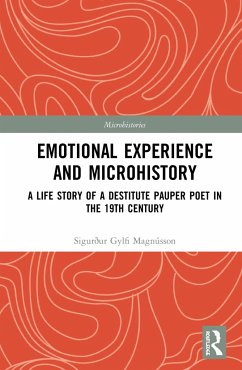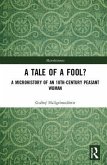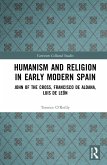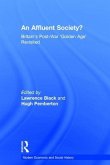Emotional Experience and Microhistory explores the life and death of Magnús Hj. Magnússon through his diary, poetry and other writing, showing how best to use the methods of microhistory to address complicated historical situations. The book deals with the many faces of microhistory and applies it's methodology to the life of the Icelandic destitute pauper poet Magnús Hj. Magnússon (1873-1916). Having left his foster home at the age of 19 in 1892, he lived a peripatetic existence in an unstinting struggle with poor health, together with a ceaseless quest for a space to pursue writing and scholarship in accord with his dreams. He produced and accumulated a huge quantity of sources (autobiography, diary, poems, reflections) which are termed by the author as 'egodocuments'. The book demonstrates how these egodocuments can be applied systematically, revealing unexpected perspectives on his life and demonstrating how integration of diverse sources can open up new perspectives on complex and difficult subjects. In so doing, the author offers an understanding both of how Magnússon's story has been told, and how it can give insight into such matters as gender relations and sexual life, and the history of emotions. Highlighting how the historiographical development of modern scholarship has shaped scholars' ideas about egodocuments and microhistory around the world, the book is of great use and interest to scholars of microhistory, social and cultural modern history, literary theory, anthropology and ethnology.
Hinweis: Dieser Artikel kann nur an eine deutsche Lieferadresse ausgeliefert werden.
Hinweis: Dieser Artikel kann nur an eine deutsche Lieferadresse ausgeliefert werden.
'This discussion by Sigurður Gylfi about Magnús Hj. Magnússon is great fun. As I have said, I like the methodology and the material is such that readers all over the world must be impressed, feel sorry for Magnús, admire him and despise him at the same time. I find Sigurður Gylfi's theory that Magnús created a character, a version of himself, that over time has begun to influence his perception, views on the world and how he organized his life, particularly interesting. Thus, the diaries are not only a source of Magnús agency, but an act in itself, a testimony that he was a doer in his own life, "a man who responds to his fate", but this is the unanimous conclusion of Sigurður Gylfi.' - Ásta Kristín Benediktsdóttir, Saga LIX:1 (2021).








